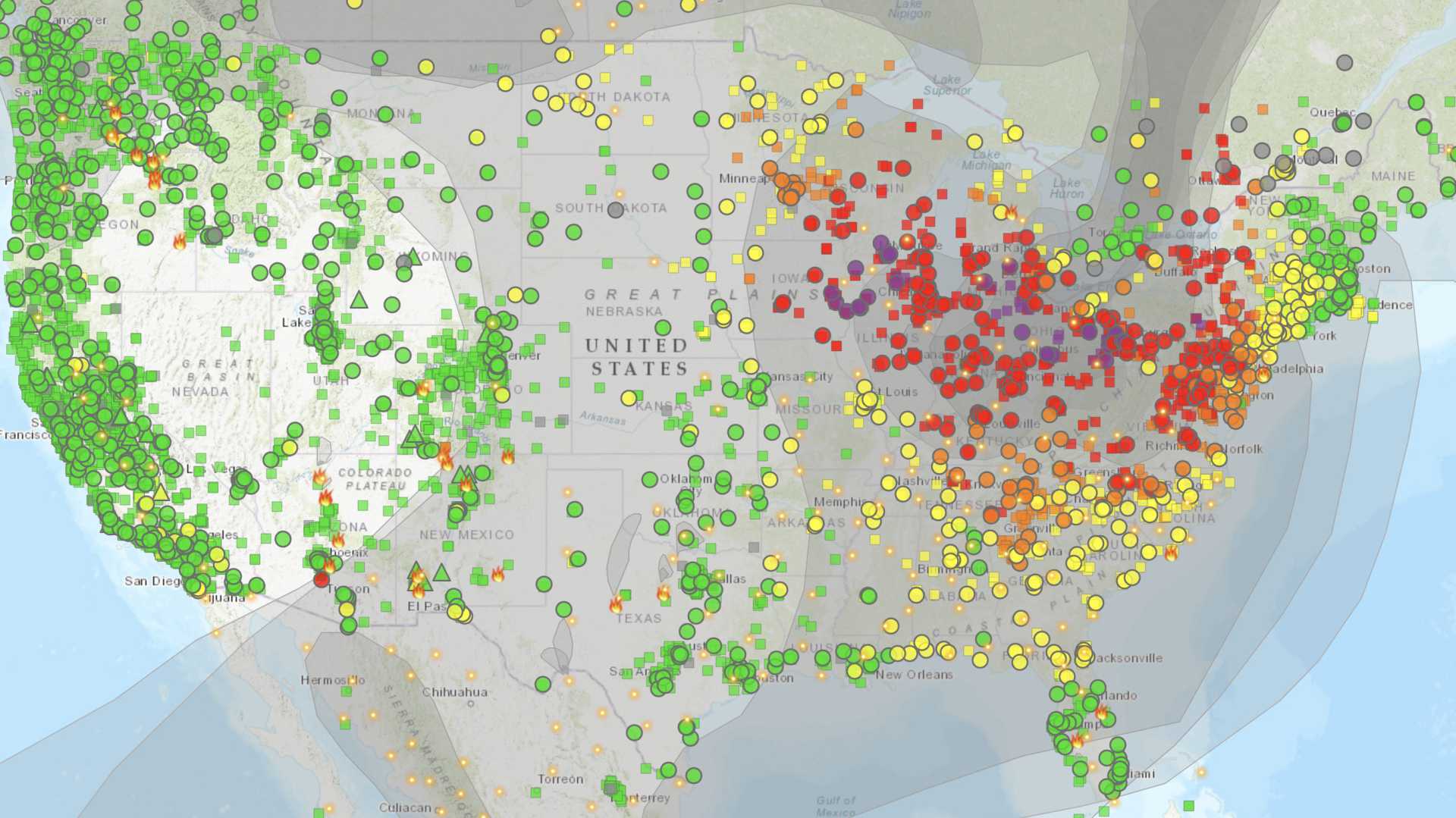News
Wildfires in Canada Cause Air Quality Alerts Across U.S. States

OTTAWA, Canada — At least 742 wildfires are currently raging across Canada, causing significant air quality issues in the Upper Midwest and Northeast United States. The smoke has led to hazy skies stretching from Detroit to New York City, prompting air quality alerts and operational disruptions at airports.
According to the Canadian Interagency Forest Fire Centre, 201 of the wildfires remain out of control as of Monday. As a result, eight states, from Wisconsin to Maine, are under air quality alerts due to smoke, which is expected to linger through at least Tuesday.
In Boston, flights at Logan International Airport faced delays of up to 52 minutes due to low visibility attributed to smoke. On Monday, Detroit was ranked among the cities with the worst air quality globally, according to IQAir. The Michigan Department of Environment, Great Lakes, and Energy (EGLE) issued an advisory regarding elevated levels of fine particulate matter (PM2.5).
While alerts mainly affect those in sensitive groups, including individuals with heart or lung conditions, aspects of northern Minnesota and the Upper Peninsula of Michigan face “unhealthy” air quality levels for everyone.
In previous years, similar wildfires dramatically affected air quality, leading to dangerous conditions in major cities. This summer, about 3,991 wildfires have burned more than 6.7 million acres in Canada, some in inaccessible regions of Saskatchewan, Manitoba, Alberta, and British Columbia.
Rep. Jack Bergman, R-Mich., has expressed urgent concerns to the Canadian government, urging them to take more effective measures to control wildfires. He noted the widespread air quality issues and public health risks in Northern Michigan and the Upper Peninsula. Hospitals are reporting increased cases of respiratory distress, especially in vulnerable populations.
Bergman suggested that Canada should implement practices like thinning forests and conducting prescribed burns to reduce future wildfire risks. “The science and tools exist; what’s needed is the will to act with urgency,” Bergman stated in his letter.












